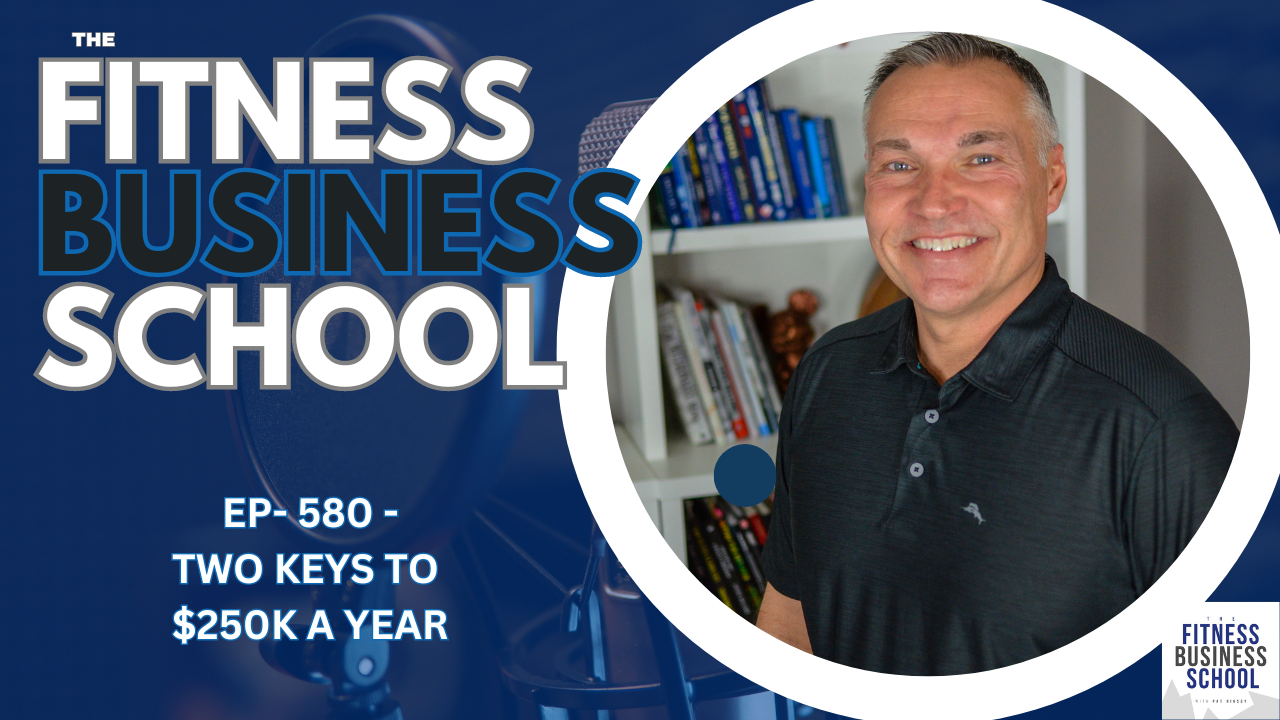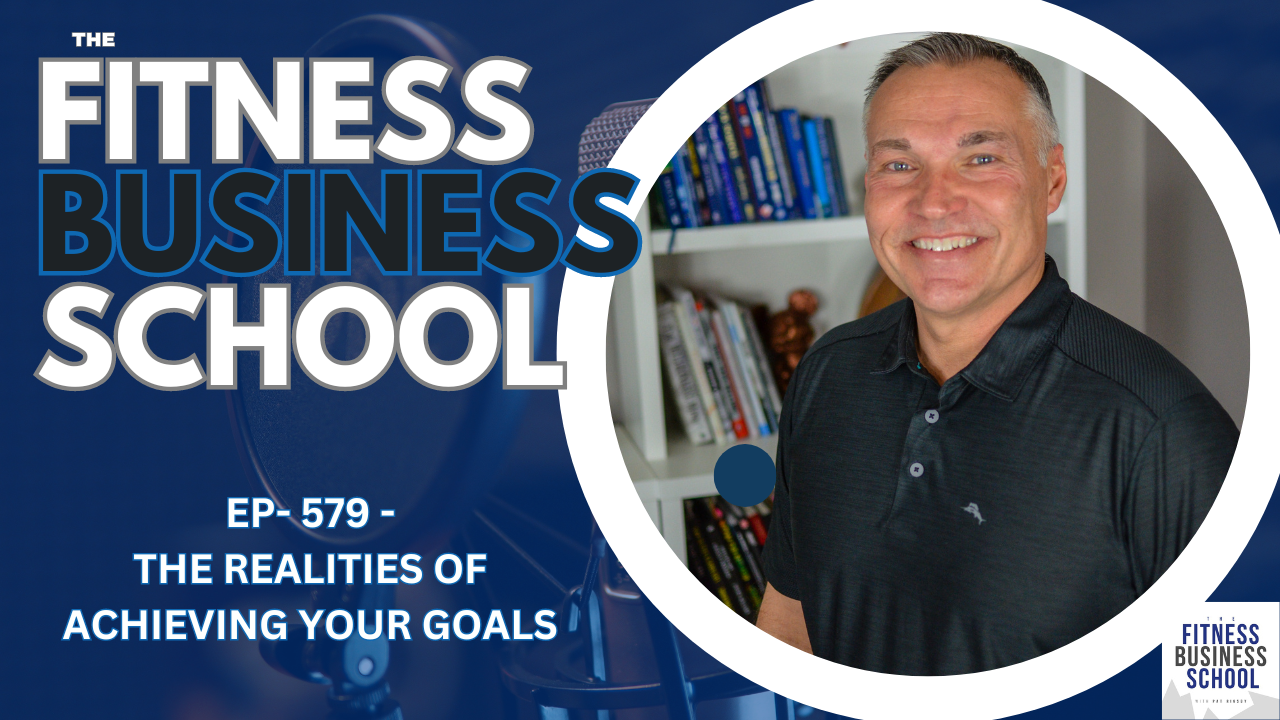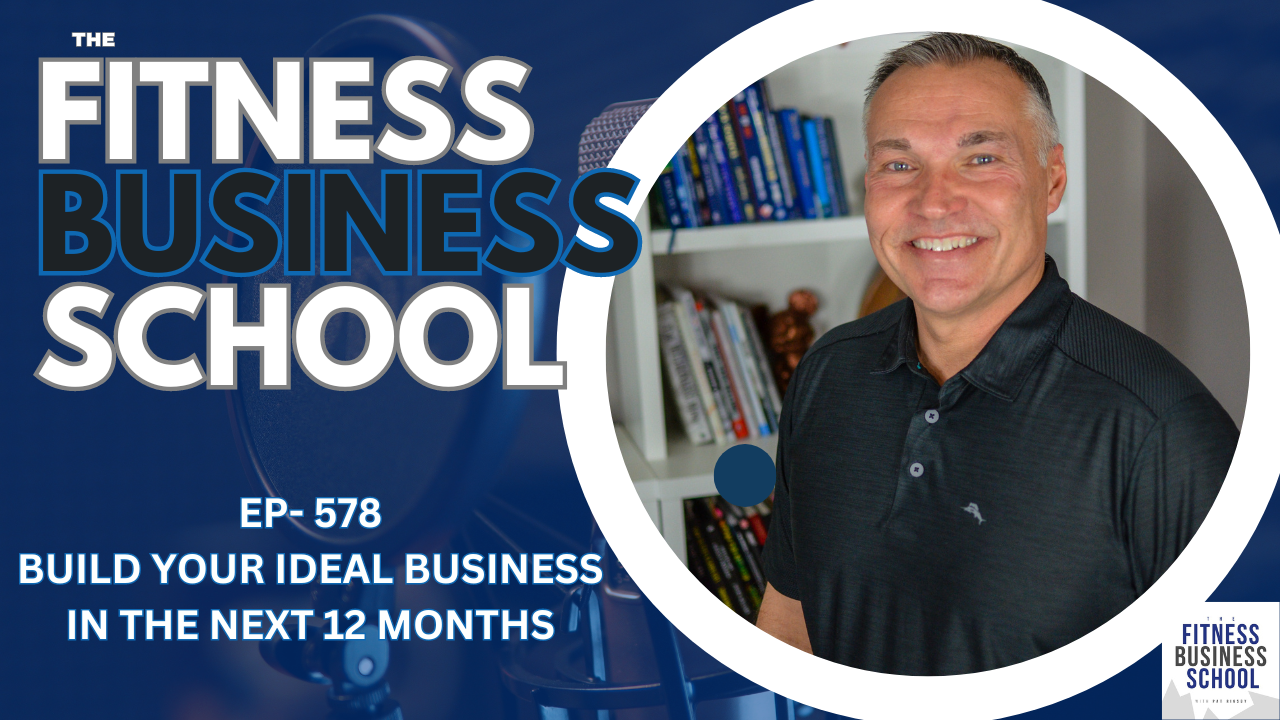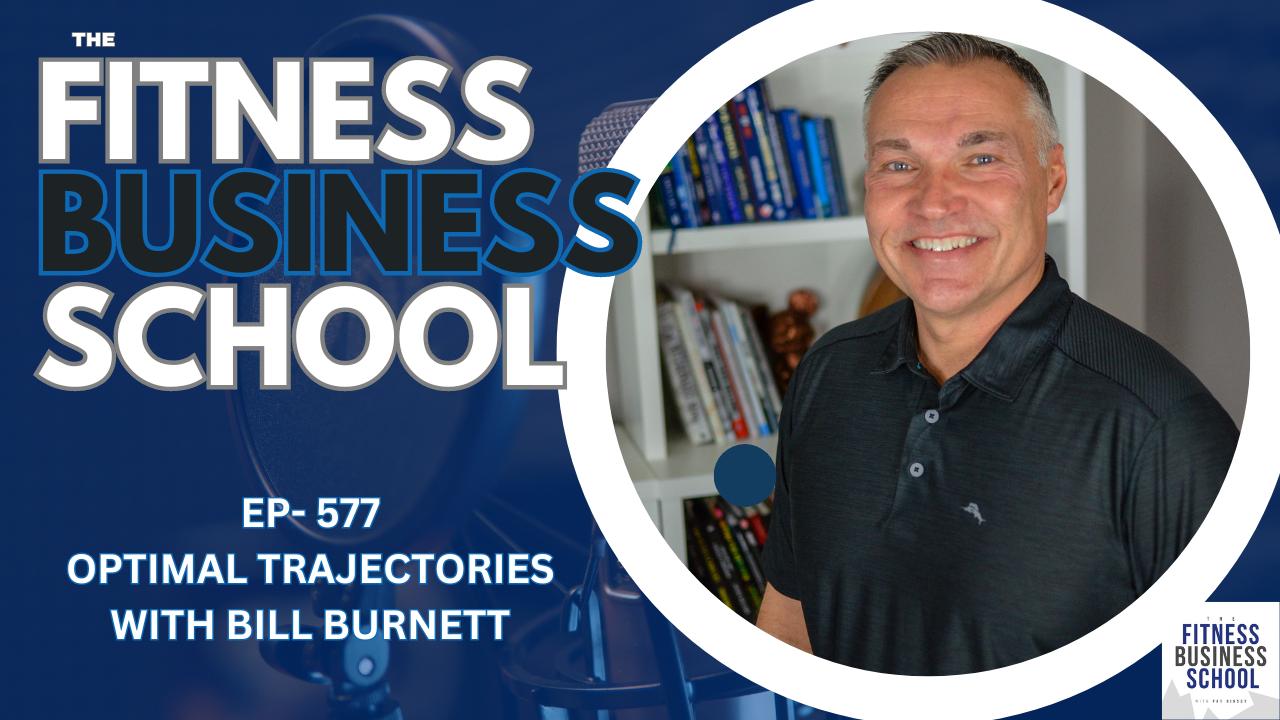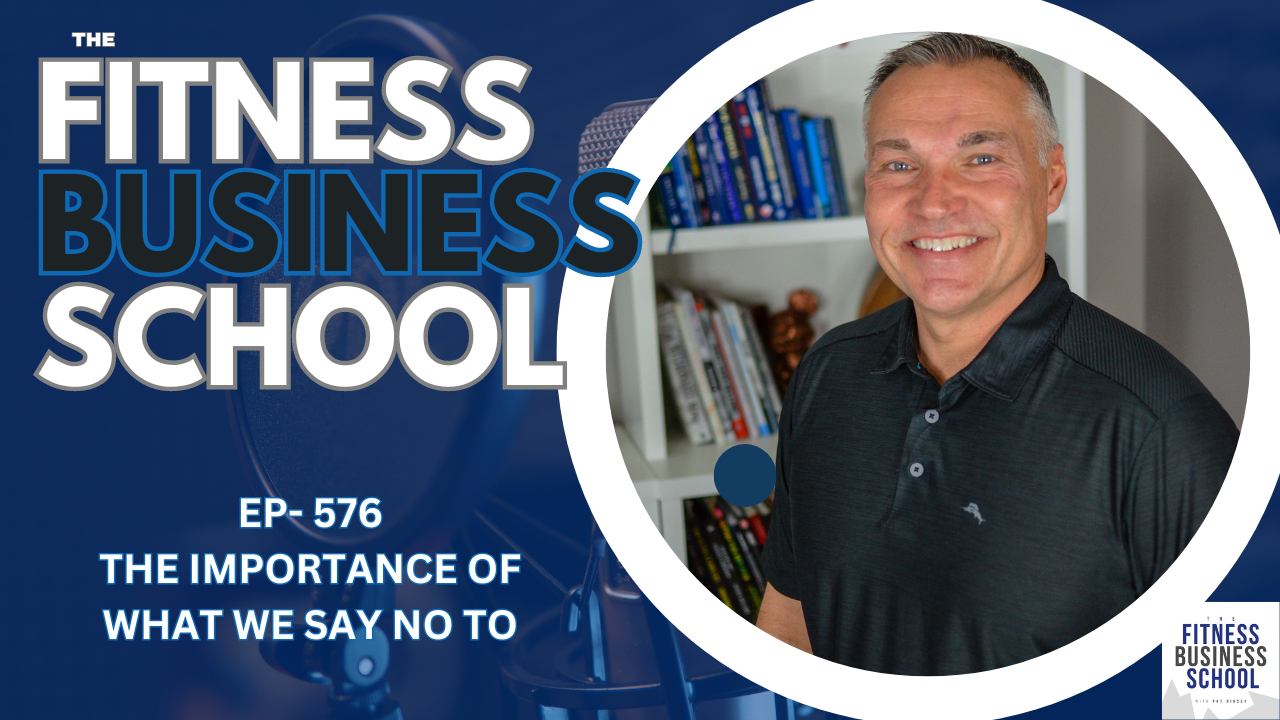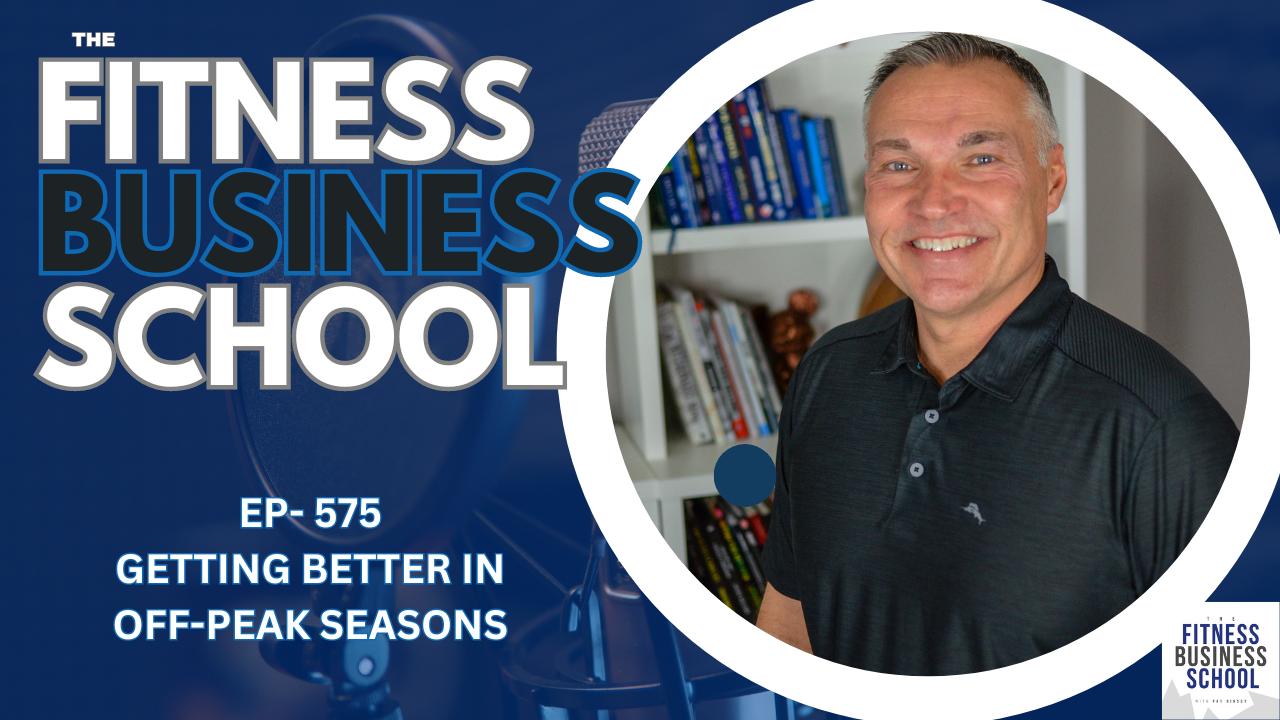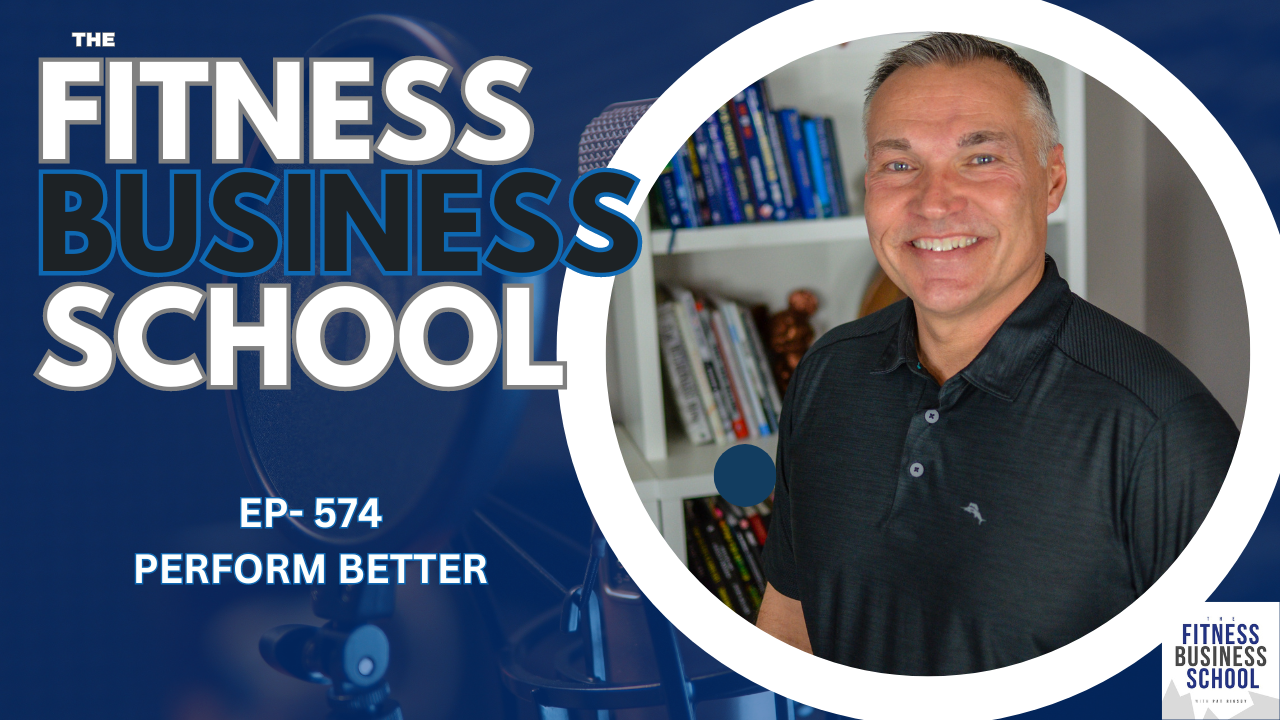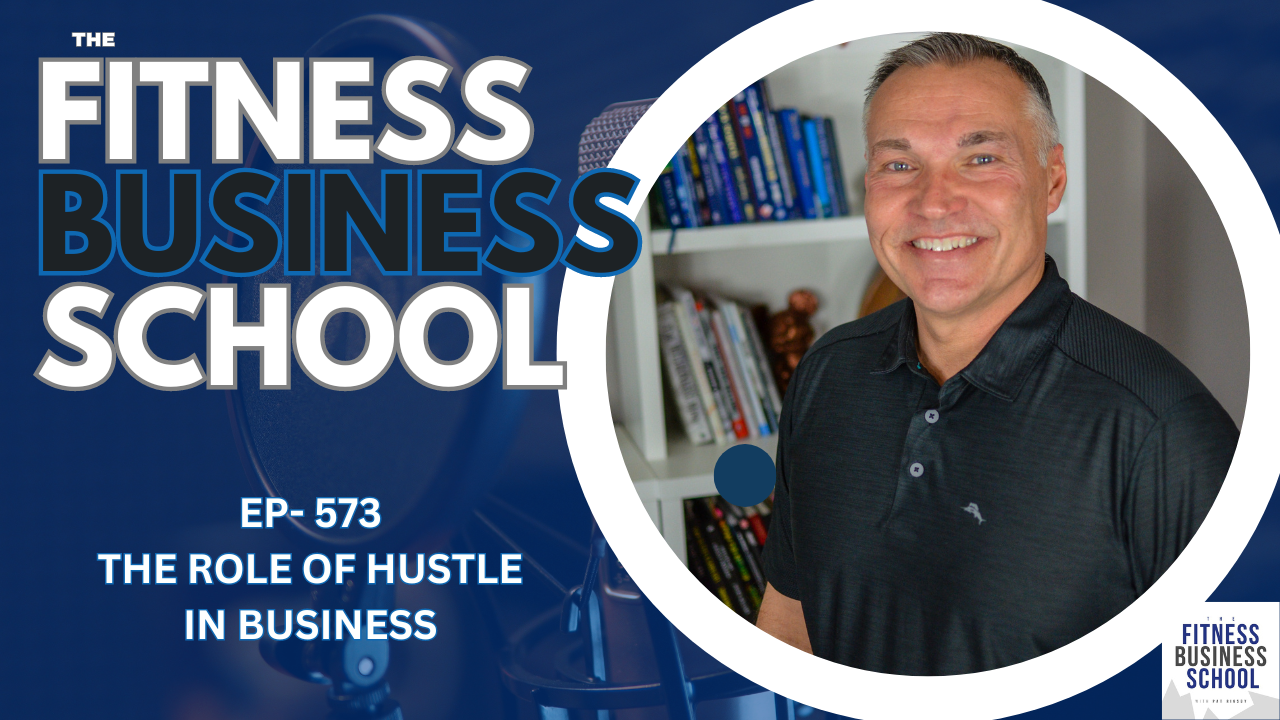Show Notes
00:00 Introduction to Your Ideal Business
00:30 The Journey to Creating an Ideal Business
01:46 Learning from Experience
06:10 Defining Success on Your Own Terms
08:50 Strategic Planning for Your Ideal Business
11:11 Invitation to Connect and Final Thoughts
12:07 Special Offer: Ideal Business Diagnostic
Full Transcript
Hey, Pat Rigsby here and in today’s episode, I want to talk with you about what your ideal business actually is. Let’s get to it.
Welcome to the fitness business school podcast, the show for fitness business owners who want to grow their income, increase their impact and improve their lifestyle. Be sure to listen to the end of this episode because we have a brand new special offer exclusive for listeners. So stay tuned.
About a decade ago when I really kind of did a deep dive into wanting to create my ideal business, what it actually looked like, the type of clients I wanted to work with the role or roles I wanted to play in the business, the people I wanted to surround myself with, the schedule that I wanted to work, the gist.
All the variables that went into constructing a business. I was pretty fortunate because I had owned or co owned over two dozen businesses. To that point, I had gotten to kind of peek under the hood with literally thousands of businesses prior to that. I mean, I’ve done more coaching calls than anybody else on the planet in the past couple of decades.
Just kind of the nature of the way that I do things. I mean, there are probably a number of people who’ve hosted workshops or spoken at business events that have reached more people in kind of one way output based stuff. But as far as learning about people’s businesses and kind of peeking under the hood, I mean, I’ve been fortunate enough that I’ve done more of that than anybody.
And so I got to, Just aggregate all of these things that would work well and all of these things maybe didn’t work so well. And I, man, I saw it from every angle. I mean, I saw people who were brand new startups that were subleasing space as a, as a solo trainer in a gym. And I consulted with nine figure companies.
I got to. See people in major metropolitan markets and in real rural markets. I saw people who were entirely online and some people who did everything they could to avoid computers altogether. And. Yeah. And so it was this wonderful education that I feel very lucky and grateful to have gone through because I definitely kept my head up and was pretty observant throughout instead of just disseminating one size fits all advice.
It’s okay. I want to learn kind of what’s going on, what makes this person tick, how this works, and. As I kind of shifted into wanting to move away from the type of business that I had built to crafting something more strategic and to be fair, the way that my business evolved, some of it was maybe based on.
If I’m being kind immaturity and just that kind of hard charging, I just want to grow at all costs mentality. Some business, some, some of the business growth was the fact that there, there were, there was not only just there was one kind of partner that had been around throughout the, the entire duration, but then other partners and that you’re trying to.
Mesh visions of multiple people, which is always potentially a challenge. And then some of it was just opportunity, right? It was a little bit of the wild west. I mean, went from a startup in a training business in a local market that grew very rapidly, like over 400 clients in about a year and a half to seven years later having Not one, but the two number one ranked franchises and their respective categories, like in personal training and in youth, athletic and sports in an entrepreneur magazine.
And all of that happened very quickly. And you’re kind of building the plane as you fly. And I think that Because of that, there, there probably wasn’t as much strategy and thinking time. And interestingly enough, a couple of the, the business people that I’ve gravitated to learning from the most were guys like Charlie Munger, who recently passed away and Warren Buffett.
But then even on a more kind of, down to earth, not billionaire level guys like Dean Jackson, the, that would influence my way of thinking. And they’re all very much strategic, right? Like they’re very thoughtful in how they make their decisions. And I think that as I’ve kind of moved into this, my current phase of business, where I really was excited about building what I called my ideal business, which I think was every bit as ambitious.
It’s just, it wasn’t based entirely around like vanity metrics. It wasn’t like, Hey, what kind of awards can you win? What kind of gross revenue number can you hit? I got to do all that stuff and it looks good on a LinkedIn page and, and I’m sure that it still creates some business opportunity for me because there’s a bit of social proof.
There’s some evidence that I know how to do some of those things and have done them. But the, the thing that I learned was that, Each of us get to define what success personally or professionally is for us. And no different than some people feeling, man, success for me is I want to live. Out in the country or out in the woods, far away from other people and other people feel like success is, man, I want to have a great apartment and a high rise in Manhattan.
Success in business is exactly the same. I mean, there’s not just a one size fits all approach. I mean, I’ve got somebody like Nate Stowe, who is for the most part a solopreneur. I mean, he subleases and he has subleased at times to, to other people in his business. But I mean, he does semi private training in a kind of boutique atmosphere in Austin and has built an extraordinary business that allows them to have their dream house, to put money away, to, and have financial security to do the things that he wants with his wife and his daughter.
And to me, that’s ideal. Right. And then on the other end of the spectrum, I’ve had the good fortune to coach and now collaborate with and partner on many projects with Doug Spurling and Doug’s business is significantly bigger and he is really kind of detached from the day to day.
He’s still does some work on like marketing strategy and some of the leadership stuff, but it’s pretty, pretty solid that, that you are able to have this wonderful business that fits you. Like, and so for Doug, that that’s allowed him the freedom and flexibility to spend a lot of his time. Building a real estate empire with a little bit of commercial real estate in the building that he has, but then short term rentals that he’s become really successful with and excited about and now starting to teach to other people.
And you can have your ideal business and it be it all sorts of ends of the spectrum. But, The thing that I’ve noticed about both of them and all sorts of cases in between and that run similar is that It doesn’t happen by accident Like you have to be intentional you have to be strategic and if you want to build your ideal business you need to be very thoughtful about What it is that you want.
What are the things that you don’t want if you don’t want to Manage Employees, you don’t have to, but it just means that you’re putting some guardrails in place that, that cause you to have to get to your destination in other ways. If you don’t want to be on the floor training clients, then it means you have some guardrails in place that force you to get there in other ways.
And, That’s one of the real hallmarks that I’ve seen of the successful business owners is they’ve been strategic about where they wanted to go. They’re willing to say no to shiny objects. They’ve, they’ve been great about saying, okay, I’m going to find a way to get to where I want to go. I’m not going to compromise on the things that make my ideal business.
It actually ideal. In order to get there and they’re not being tugged into every new marketing tactic or every new potential profit center. It’s not that they don’t consider them and it’s not that they don’t ever add them. It’s just that they’re very thoughtful and intentional about what they add because they understand that there’s only so much bandwidth and there’s only so much of them to go around and for things to be ideal.
You get, you have to, to pick the right stuff, whether it’s the right people or the right processes or the right model. And so if you’ve not done that, if you feel like, Hey, I’ve kind of been on a hamster wheel. If you feel like you just kind of been running all around doing stuff, then that’s okay. Take a beat.
Pause and get back to being clear about what you actually do want. And if you’re not sure that’s okay. I mean, sometimes it takes some unpacking and I’m happy to extend the invitation. If you want to talk through it with me, if you want to talk about what your ideal business is and just as importantly isn’t shoot me an email at [email protected] put IDEAL in the subject line. I’m happy to talk with you and. Help you get some clarity on where you’re trying to go, because frankly, everything gets easier and not, not only easier, but simpler, but especially easier if you know where you’re trying to go, because then you, you don’t feel burned out, you don’t feel overwhelmed because the things that you’re doing are leading you somewhere.
They’re not just a bunch of. Plate spinning in the air. It’s not just you juggling a bunch of different things. It’s actually you getting closer to where you want to be.
Thanks for listening to this episode of The Fitness Business School.
Before you go, I have a quick announcement:
One of of the things that we’ve been doing with our current clients is taking them through this Ideal Business diagnostic and really what it is, this checklist that allows you to pinpoint exactly what your business needs next so you can keep improving, keep growing, and build a business that you love to own, one that pays you well, one that allows you to have the impact you wanna have and one that allows you to have a lifestyle that you truly enjoy.
In this diagnostic, we walk through everything and we do an evaluation and can instantly pinpoint what you need to do next to build that business that you want. I’m going to extend this opportunity to get on with either me or my team and take you through this evaluation and fix your business’s most vital needs fast.
So if we take you through this, you’re gonna be able to make those vital changes that you need to finally have what I call your Ideal Business. If you’d be interested in going through this entirely free, risk-free diagnostic with us and learn what you already have in place, what you’re doing well and where are your greatest opportunities for rapid improvement are just shoot me an email with diagnostic in the subject line to [email protected].
Again, an email to [email protected] with diagnostic in the subject line will get
you scheduled and take you through this evaluation to help you build the business you want.
